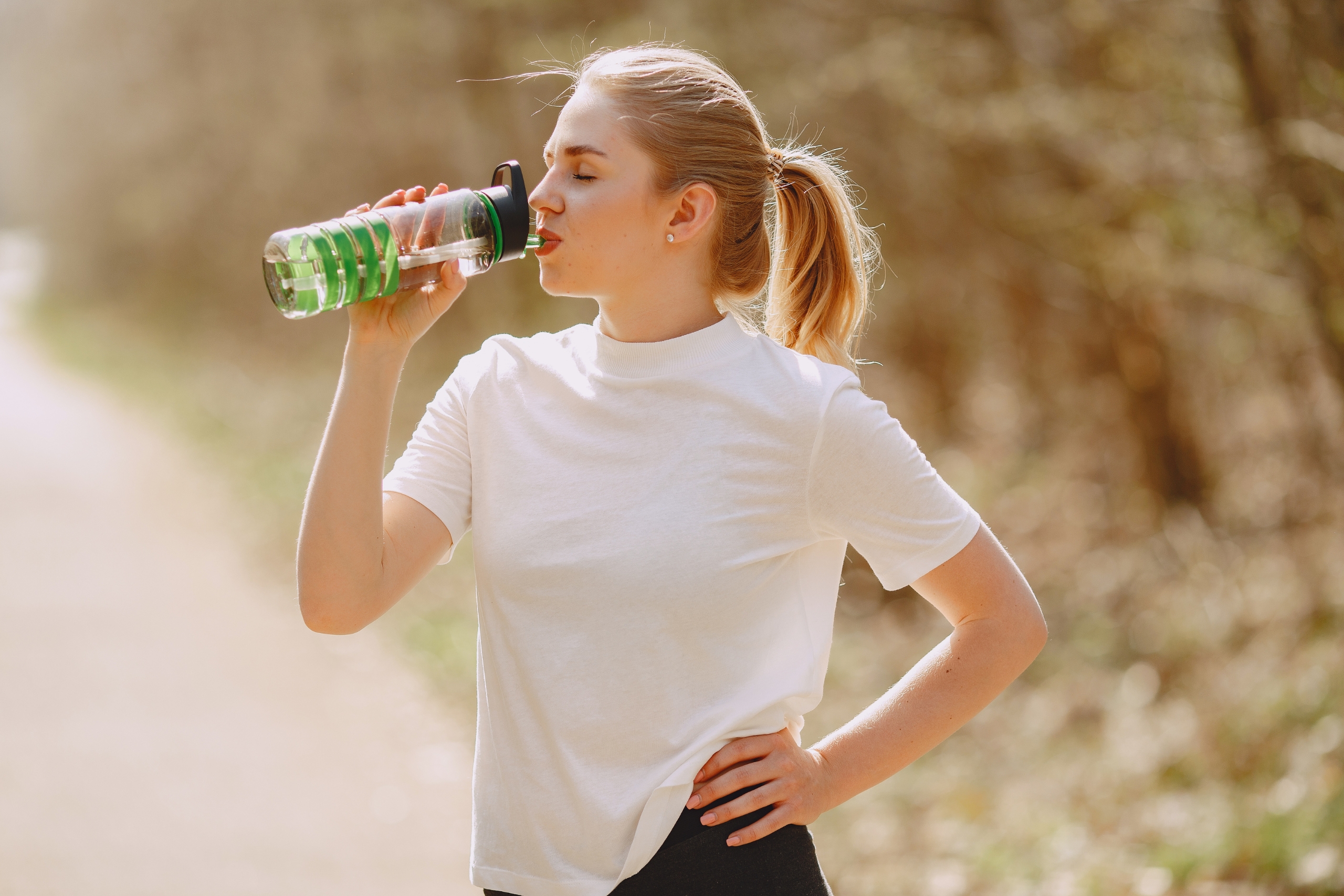Are you looking for a natural way to boost your athletic performance and endurance? Cutting out sugar from your hydration routine could be the key to reaching new levels of fitness success.
Sugar-laden sports drinks and energy gels have long been touted as essential for athletic performance, but recent research suggests that these products may actually be hindering rather than helping endurance. With the rise of the no sugar movement in the health and fitness world, athletes are discovering the benefits of ditching sugary drinks in favor of healthier alternatives.
Do Electrolytes Work Without Sugar?
Electrolytes play a crucial role in maintaining the proper functioning of our body, even without the presence of sugar. These electrically charged minerals help regulate various bodily functions and support optimal hydration levels.
When electrolytes are ingested, they dissolve in bodily fluids and form ions. These ions have positive or negative charges that enable them to conduct electrical impulses necessary for muscle contractions, nerve transmissions, and hydration balance. Sodium, potassium, magnesium, and calcium are examples of essential electrolytes needed for these processes.
In the absence of sugar, electrolyte drinks are effective in replenishing the body’s mineral levels and aiding hydration. These drinks mainly contain salts or their equivalents, such as sodium chloride or potassium citrate, which help restore electrolyte balance. These key ingredients are formulated in specific concentrations to mimic the electrolyte composition of body fluids.
Electrolyte drinks also often include trace minerals like zinc and copper to support overall health and immune function. Additionally, some sugar-free electrolyte drinks may incorporate flavorings or natural sweeteners like stevia to enhance taste without adding excess sugar.
Benefits of Zero Sugar Hydration for Athletic Endurance
Zero sugar hydration can offer numerous benefits for athletic endurance. Firstly, it helps to improve hydration levels.
Proper hydration is crucial for athletes as it enhances athletic performance and prevents dehydration, which can lead to fatigue and decreased endurance. No sugar hydration options, such as electrolyte drinks or water with added minerals, help to replenish fluids and maintain optimal hydration levels. Unlike sugary beverages, these options do not cause excessive thirst or water retention, allowing athletes to stay properly hydrated.
In addition, zero sugar hydration options provide sustained energy levels during physical activities. When engaging in endurance exercises, the body relies on a steady supply of energy to perform optimally. Sugar-laden drinks can cause energy spikes and crashes, leading to decreased performance. On the other hand, zero sugar hydration options provide a steady release of energy, ensuring that athletes have a sustained and consistent source of fuel to power through their workouts or competitions.
Furthermore, zero sugar hydration can enhance endurance during physical activities. By maintaining optimal hydration levels and providing sustained energy, athletes are able to perform at their best for longer periods of time. This is particularly important in endurance sports, such as running or cycling, where stamina and lasting power are key factors for success. Zero sugar hydration options contribute to improved endurance, allowing athletes to go the extra mile and push their limits.
Difference Between Energy Drinks and Electrolyte Beverages
Energy drinks and electrolyte beverages are both popular choices for athletes and individuals seeking an energy boost. However, there are key differences between the two that make electrolyte beverages a better option for hydration.
Energy drinks often contain high levels of caffeine and sugar, which can lead to dehydration. Caffeine is a diuretic, which means it causes the body to lose fluids more quickly. Excessive sugar intake can also have a dehydrating effect. While energy drinks may provide a temporary energy boost, they can actually hinder hydration levels, making them less suitable for athletes.
On the other hand, electrolyte beverages are specifically formulated to replenish fluids and essential minerals lost through sweating. These beverages contain a balanced mix of electrolytes, such as sodium, potassium, and magnesium, which are crucial for maintaining hydration levels. Electrolytes help the body absorb fluids more efficiently, making them a better option for rehydration during and after physical activity.
Furthermore, electrolyte beverages are often low in sugar or have options with no added sugars, making them healthier choices overall. They provide the necessary hydration without the negative effects associated with excessive sugar intake that energy drinks may have.
Impact of Sugar on Athletic Performance
Sugar can have significant negative effects on energy levels and athletic performance. Consuming excessive amounts of sugar can lead to a rapid increase in blood sugar levels, followed by a crash, leaving individuals feeling tired and fatigued. This rollercoaster effect on energy levels can greatly impede athletic performance.
One of the key reasons sugar negatively impacts energy levels is its role in dehydration. When sugar is consumed in high quantities, it interferes with the body’s ability to retain water, resulting in increased urine production. This can lead to dehydration, a condition that significantly affects athletic performance. Dehydration not only impairs cardiovascular function but also hampers muscle endurance and strength. This makes it harder for athletes to perform at their best and can even increase the risk of injuries.
Furthermore, sugar consumption has been linked to inflammation and oxidative stress in the body. Inflammation can result in muscle soreness and delayed recovery after physical activity, further hindering athletic performance. In addition, oxidative stress caused by sugar can lead to muscle damage and reduced muscle function, affecting strength and power output during workouts or competitions.
To maximize athletic performance, it is crucial to reduce sugar intake and instead opt for a balanced diet consisting of complex carbohydrates, lean proteins, and healthy fats. These nutrient-rich foods provide sustained energy, enhance endurance, and support muscle recovery. Staying hydrated with water or electrolyte-rich beverages is also essential to combat the dehydrating effects of sugar and optimally fuel athletic endeavors.
No Sugar vs. Plain Water: Which is Better for Athletic Performance?
Consuming beverages with no sugar and plain water can have distinct effects on athletic performance. While both options can hydrate the body, there are notable differences in their potential benefits and drawbacks.
Sugar-free beverages, such as sports drinks or flavored water, offer certain advantages. They often contain electrolytes, which aid in replacing lost minerals during exercise. This can help maintain proper muscle function and prevent dehydration. Additionally, the inclusion of artificial sweeteners may provide a burst of energy. However, these beverages may also contain additives and preservatives that could have negative effects on the body, such as gastrointestinal discomfort or allergic reactions.
On the other hand, plain water has its own set of benefits. It is calorie-free and provides pure hydration. Water is essential for regulating body temperature, lubricating joints, and transporting nutrients to muscles. Additionally, it is readily available and inexpensive. However, plain water does not contain electrolytes, which may hinder the body’s ability to effectively replenish minerals lost through sweat.
The choice between sugar-free beverages and plain water depends on various factors. These include the duration and intensity of the activity, the individual’s sweat rate and electrolyte needs, and personal preference. For shorter and less intense activities, plain water may suffice. However, for more prolonged and intense exercise, sugar-free beverages with electrolytes may offer greater benefits.
Hydration plays a crucial role in athletic performance. Proper fluid intake helps sustain blood volume, which optimizes oxygen and nutrient delivery to working muscles. When dehydrated, athletes may experience fatigue, muscle cramps, and impaired cognitive function.
Practical Tips for Implementing Zero Sugar Hydration in Sports and Exercise Routines
When it comes to sports and exercise routines, maintaining proper hydration is crucial for optimal performance and recovery. However, many hydration drinks and supplements contain high amounts of sugar, which can be detrimental to health and fitness goals. Here are some practical tips for implementing a zero sugar hydration routine:
1. Choosing the right hydration drinks or supplements: Look for options that are sugar-free or low in sugar. Electrolyte-enhanced water or natural coconut water can be excellent choices as they provide hydration without the unnecessary sugar content.
2. Incorporating whole foods and natural alternatives for energy: Instead of relying solely on sugary drinks, consider incorporating whole foods that are hydrating and provide energy. Fresh fruits, such as watermelon and oranges, are not only hydrating but also rich in vitamins and minerals.
3. Adjusting pre-workout and post-workout nutrition to support endurance: Before a workout, focus on consuming foods that provide sustained energy, such as complex carbohydrates like oats, quinoa, or sweet potatoes. After a workout, replenish electrolytes with foods like bananas or leafy greens, which are rich in magnesium and potassium.
By following these practical tips, you can implement a zero sugar hydration routine that supports your sports and exercise goals while maintaining a healthy diet. Remember to listen to your body’s signals and stay hydrated throughout your workouts to optimize performance and recovery.

Conclusion
In conclusion, adopting a zero sugar hydration approach can have numerous benefits for athletic endurance and overall performance. By eliminating sugars and artificial additives from sports drinks and opting for natural alternatives such as water, coconut water, or homemade electrolyte drinks, athletes can maintain better hydration levels and avoid the energy crashes associated with sugary beverages. Additionally, the absence of sugars helps prevent gastrointestinal distress and can enhance digestion and nutrient absorption, leading to improved overall performance. Incorporating this approach into an athlete’s training regimen can lead to increased endurance, better recovery, and ultimately, enhanced results. Therefore, athletes should consider making the switch to no-sugar hydration to take their athletic performance to the next level.

